13 Best Herbal Teas For Itchy Skin
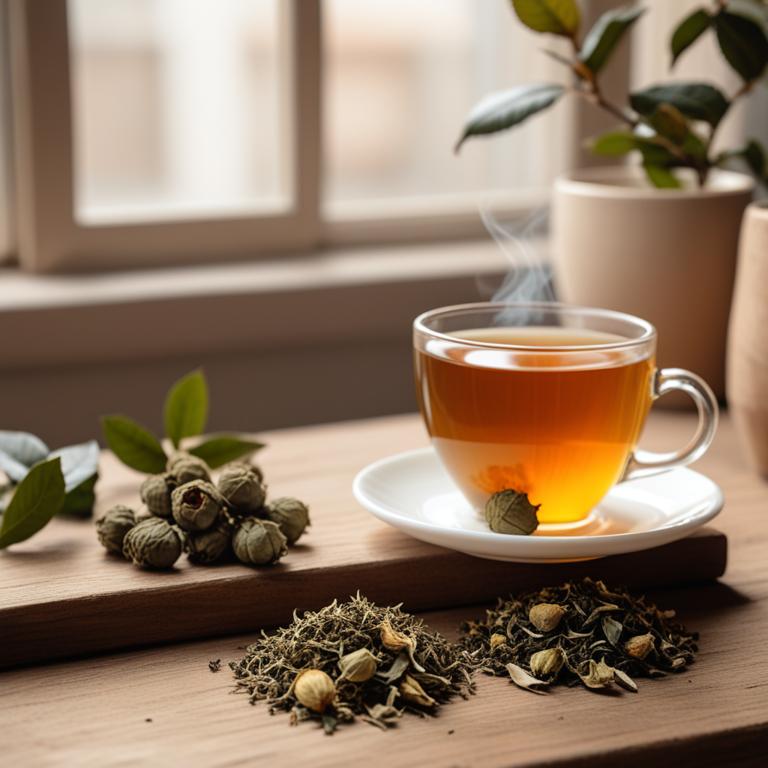
Herbal teas for itchy skin are a natural remedy that involves brewing teas from various herbs to soothe and calm itchy skin conditions.
These teas are beneficial in treating itchy skin ailments due to their anti-inflammatory, antihistamine, and antioxidant properties, which help to reduce itching, redness, and swelling.
Examples of herbal teas that can be used to treat itchy skin include chamomile, which has anti-inflammatory properties that help to calm itchy skin; lavender, which has antiseptic properties that help to prevent infection; peppermint, which has cooling properties that help to reduce itching; calendula, which has anti-inflammatory properties that help to reduce redness and swelling; and lemon balm, which has antiviral properties that help to combat infections that can cause itchy skin.
By incorporating these herbal teas into one's diet, individuals can experience relief from itchy skin conditions and promote overall skin health.
According to "Complementary therapies in medicine", teas for itchy skin may be beneficial, with some indications suggesting that evening primrose oil, which can be consumed as a tea, may be effective for treating atopic dermatitis in children.
Below there's a list of the 13 best herbal teas for itchy skin.
- 1. Aloe vera teas
- 2. Calendula officinalis teas
- 3. Hypericum perforatum teas
- 4. Urtica dioica teas
- 5. Equisetum arvense teas
- 6. Saponaria officinalis teas
- 7. Saponaria ocymoides teas
- 8. Plantago lanceolata teas
- 9. Plantago major teas
- 10. Echinacea purpurea teas
- 11. Glycyrrhiza glabra teas
- 12. Rumex crispus teas
- 13. Taraxacum officinale teas
Also you may be interested in...
TODAY'S FREE BOUNDLE
Herb Drying Checklist + Herbal Tea Shopping List + Medicinal Herbs Flashcards
Enter you best email address below to receive this bundle (3 product valued $19.95) for FREE + exclusive access to The Aphotecary Letter.
$19.95 -> $0.00
1. Aloe vera teas
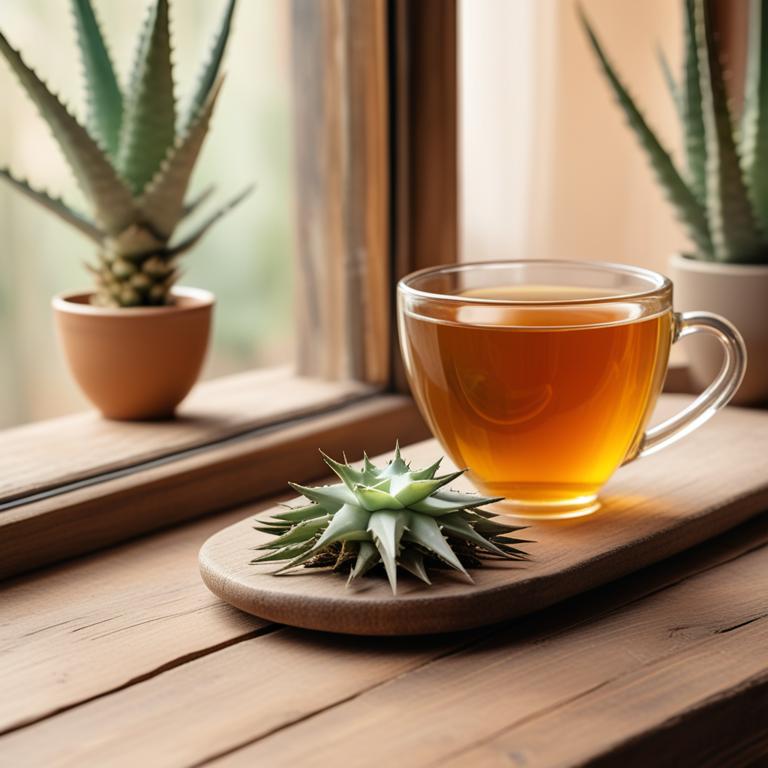
Aloe vera teas have been used for centuries to treat itchy skin ailments due to their anti-inflammatory, soothing, and moisturizing properties.
The bioactive constituents present in aloe vera teas, such as aloin, aloe-emodin, and vitamins A, C, and E, help to reduce inflammation and itching by calming the skin and promoting its natural healing process.
By consuming aloe vera teas, individuals can benefit from reduced itching and inflammation, improved skin hydration, and enhanced skin elasticity, making it an effective remedy for various itchy skin conditions.
The benefits of using aloe vera teas to treat itchy skin ailments also include reduced risk of skin infections, improved overall skin health, and a soothing, relaxing effect on the body.
Related Study
According to "Forschende Komplementarmedizin", Aloe vera teas for itchy skin may be of value in selected dermatological indications, although further controlled clinical efficacy studies and pharmacological studies are needed to prove its assumed effects.
2. Calendula officinalis teas

Calendula officinalis teas are a natural remedy used to treat the itchy skin ailment of eczema, thanks to their anti-inflammatory, antimicrobial, and antioxidant properties.
The bioactive constituents present in Calendula officinalis, such as triterpenoids and flavonoids, help to soothe and calm the skin, reducing redness and inflammation.
By reducing inflammation and promoting wound healing, Calendula officinalis teas help to alleviate the symptoms of eczema, including itching and skin irritation.
The benefits of using Calendula officinalis teas to treat eczema include reduced risk of infection, faster healing times, and improved overall skin health.
Related Study
According to "Forschende Komplementarmedizin", Calendula officinalis teas for itchy skin may be of value due to available studies, but more controlled clinical efficacy studies are needed to confirm their effects.
3. Hypericum perforatum teas

Hypericum perforatum teas, also known as St. John's Wort, have been traditionally used to treat itchy skin ailments such as eczema and dermatitis.
The anti-inflammatory and antiseptic properties of this herbal preparation help to soothe and calm irritated skin, reducing itching and redness.
The bioactive constituents, including flavonoids, tannins, and terpenoids, possess potent antioxidant and anti-inflammatory effects, which contribute to its therapeutic benefits.
The benefits of using Hypericum perforatum teas to treat itchy skin ailments include reduced inflammation, improved skin barrier function, and enhanced wound healing, making it a popular natural remedy for skin health.
Related Study
According to "BMC veterinary research", Hypericum perforatum teas may help alleviate itchy skin in dogs due to its antibacterial, antifungal, and anti-inflammatory effects.
4. Urtica dioica teas

Urtica dioica teas, also known as nettle teas, have been traditionally used to treat the itchy skin ailment known as hives or nettle rash, which is often caused by an allergic reaction.
The anti-inflammatory and antihistamine properties of this herbal preparation help to soothe and calm the skin, reducing the itching and swelling associated with hives.
The bioactive constituents of Urtica dioica, including flavonoids, carotenoids, and phenolic acids, have been shown to exhibit potent anti-inflammatory and antioxidant activities, which contribute to its therapeutic effects.
Drinking Urtica dioica teas can provide relief from itchy skin, reduce the risk of skin irritation, and promote overall skin health, making it a popular natural remedy for hives and other skin conditions.
5. Equisetum arvense teas
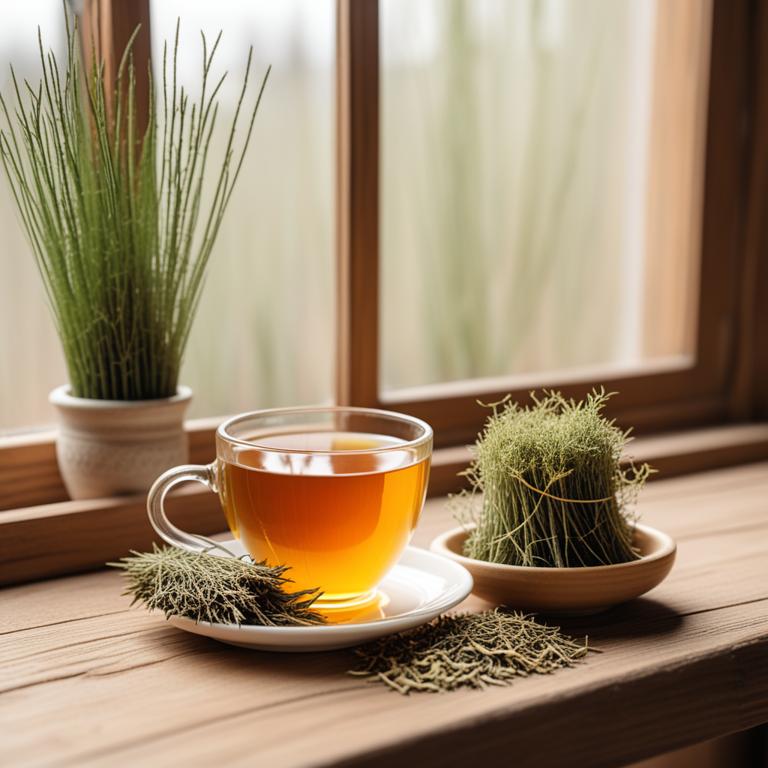
Equisetum arvense teas, also known as horsetail tea, have been traditionally used to treat itchy skin ailments such as eczema and dermatitis due to their anti-inflammatory and antiseptic properties.
The bioactive constituents of horsetail tea, including silica, flavonoids, and alkaloids, help to soothe and calm irritated skin, reducing inflammation and promoting wound healing.
Drinking horsetail tea may also help to treat itchy skin conditions by reducing oxidative stress and promoting the growth of new skin cells.
The benefits of using horsetail tea to treat itchy skin ailments include reduced itching and inflammation, improved skin hydration, and a faster recovery time.
6. Saponaria officinalis teas
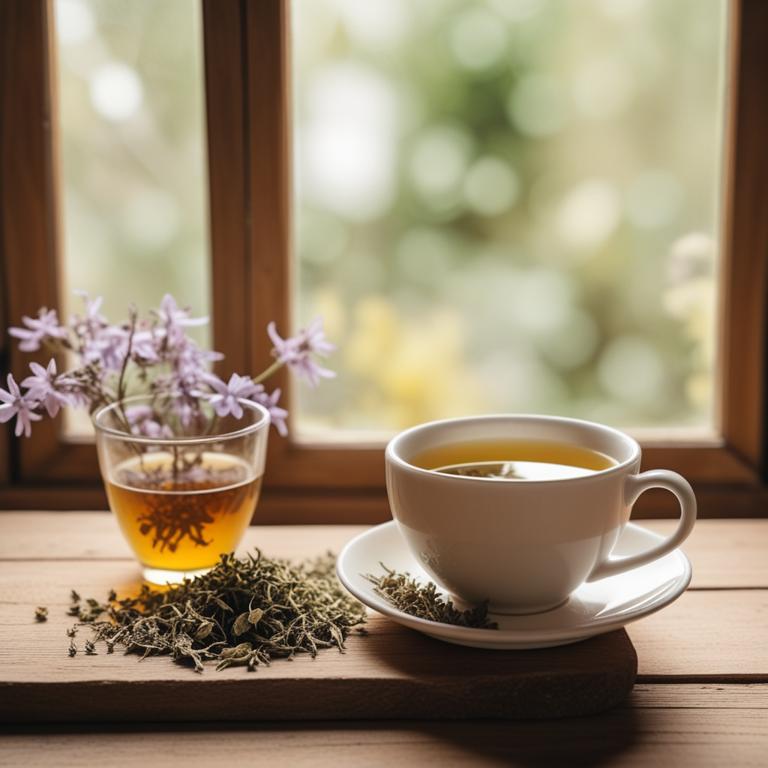
Saponaria officinalis teas, also known as soapwort teas, have been traditionally used to treat itchy skin ailments due to their anti-inflammatory and soothing properties.
The herbal preparation of Saponaria officinalis helps to treat itchy skin by reducing inflammation, promoting wound healing, and calming irritated skin.
Bioactive constituents such as saponins, flavonoids, and phenolic acids in Saponaria officinalis teas contribute to their therapeutic effects, including their ability to inhibit the production of pro-inflammatory cytokines and reduce oxidative stress.
The benefits of using Saponaria officinalis teas to treat itchy skin include reduced inflammation, accelerated wound healing, and long-term relief from itchy skin symptoms, making it a valuable herbal remedy for individuals suffering from eczema, dermatitis, and other skin conditions.
7. Saponaria ocymoides teas

Saponaria ocymoides teas have been traditionally used to treat itchy skin ailments due to their anti-inflammatory and antiseptic properties, which help to soothe and calm irritated skin.
The bioactive constituents of this herbal preparation, including flavonoids and phenolic acids, help to reduce inflammation and fight off bacterial infections that can cause itching.
By reducing inflammation and fighting off infections, Saponaria ocymoides teas can provide relief from itchy skin conditions such as eczema and dermatitis.
The benefits of using Saponaria ocymoides teas to treat itchy skin ailments include reduced itching and inflammation, improved skin health, and a natural and non-invasive treatment option.
8. Plantago lanceolata teas
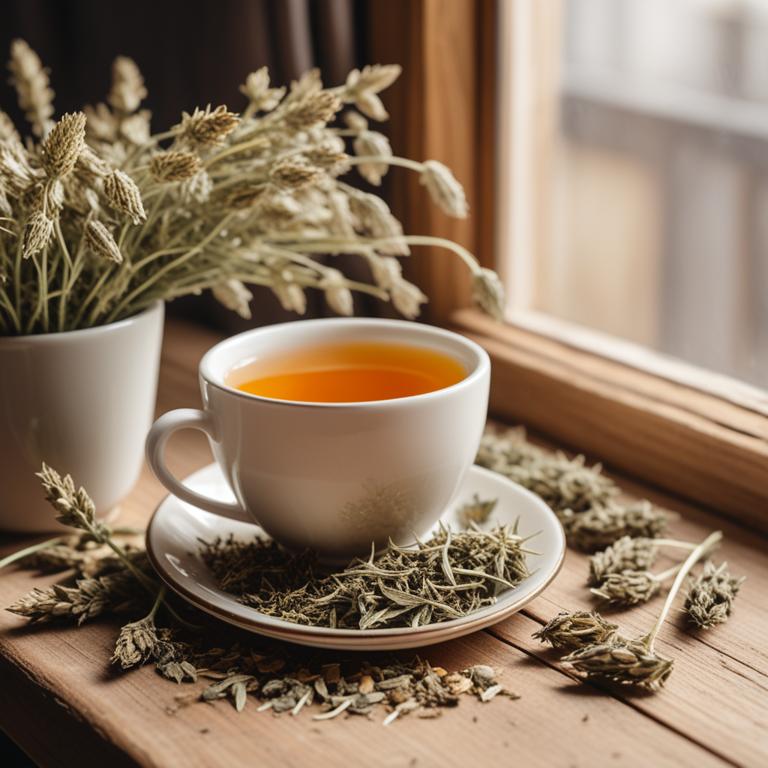
Plantago lanceolata teas have been traditionally used to treat itchy skin ailments, such as eczema and dermatitis, due to their anti-inflammatory and soothing properties.
The herbal preparation helps to treat this ailment by reducing redness and itching, and promoting wound healing.
The bioactive constituents of Plantago lanceolata teas, including flavonoids, phenolic acids, and saponins, contribute to its therapeutic effects by exerting antioxidant and anti-inflammatory activities.
The benefits of using Plantago lanceolata teas to treat itchy skin ailments include reduced symptoms, improved skin health, and a natural alternative to conventional treatments.
Related Study
According to the study on ethnopharmacological data regarding the uses of medicinal plants for the treatment of dermatological ailments, Plantago lanceolata teas are among the species traditionally used to treat skin problems, including itchy skin.
9. Plantago major teas
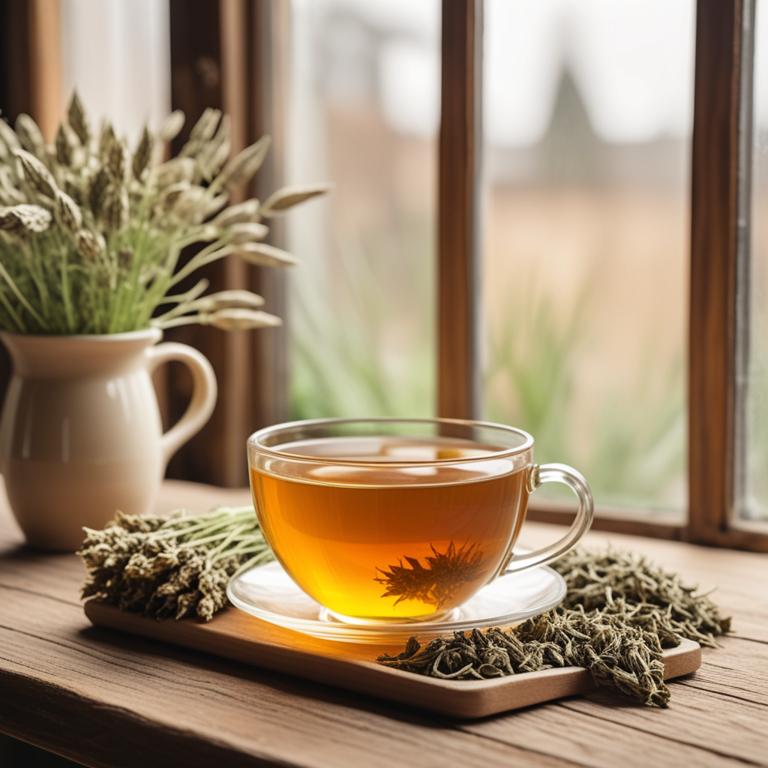
Plantago major teas have been traditionally used to treat itchy skin ailments, such as eczema and dermatitis, due to their anti-inflammatory and soothing properties.
The bioactive constituents present in Plantago major, including flavonoids and phenolic acids, help to reduce inflammation and alleviate itching sensations.
These constituents work by modulating the body's immune response and inhibiting the release of pro-inflammatory mediators, thereby providing relief from itchy skin symptoms.
The benefits of using Plantago major teas for itchy skin ailments include reduced inflammation, improved skin health, and a decrease in the frequency and severity of itchy skin episodes.
Related Study
According to "Frontiers in pharmacology", Plantago major teas for itchy skin are supported by ethnobotanical knowledge, as Plantago major L. is listed as one of the most commonly used species in the treatment of skin disorders in Albania, Turkey, and other regions.
10. Echinacea purpurea teas

Echinacea purpurea teas have been traditionally used to treat itchy skin ailments, such as eczema and dermatitis, due to their anti-inflammatory and antihistamine properties.
The bioactive constituents of Echinacea purpurea, including alkylamides, glycosides, and phenolic acids, help to reduce inflammation and alleviate itching sensations.
By modulating the immune system and reducing oxidative stress, Echinacea purpurea teas can help to soothe itchy skin and promote healing.
The benefits of using Echinacea purpurea teas for itchy skin ailments include reduced inflammation, improved skin hydration, and enhanced overall skin health.
11. Glycyrrhiza glabra teas

Glycyrrhiza glabra teas, also known as licorice root tea, have been traditionally used to treat itchy skin ailments due to their anti-inflammatory and soothing properties.
The flavonoids and saponins present in this herbal preparation help to reduce inflammation and promote wound healing, thereby alleviating the itchy sensation.
The glycyrrhizin content in Glycyrrhiza glabra teas is particularly beneficial in treating itchy skin conditions by inhibiting the release of histamine and other inflammatory mediators.
Overall, the use of Glycyrrhiza glabra teas has been shown to provide relief from itchy skin ailments, making it a popular natural remedy for skin health.
12. Rumex crispus teas
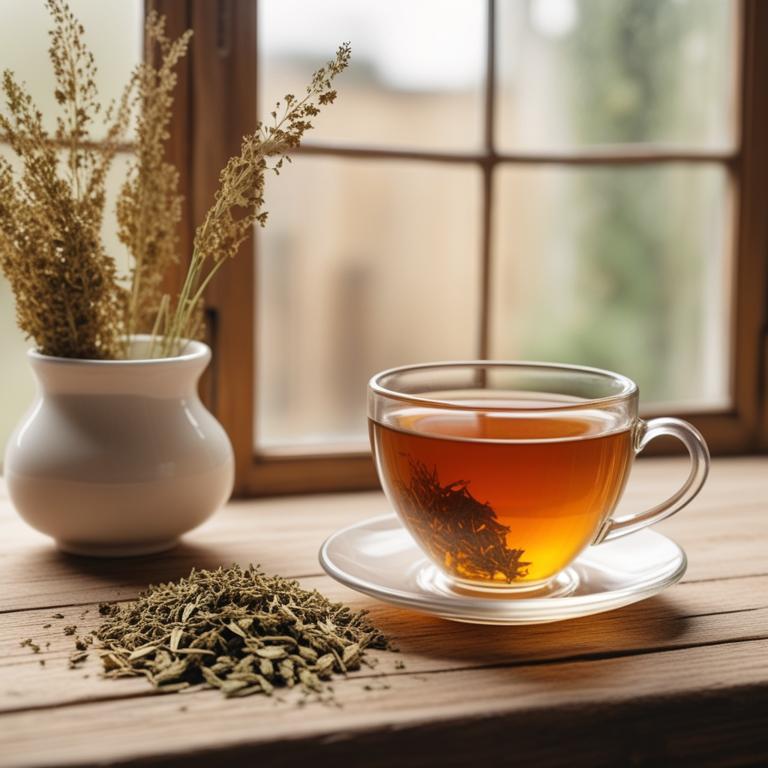
Rumex crispus teas, also known as dock root tea, have been traditionally used to treat itchy skin ailments such as eczema and psoriasis due to their anti-inflammatory and antiseptic properties.
This herbal preparation helps to treat itchy skin by reducing inflammation, soothing skin irritations, and preventing infections.
The bioactive constituents of Rumex crispus teas, including tannins, flavonoids, and phenolic acids, contribute to its therapeutic effects by exhibiting antioxidant, antimicrobial, and anti-inflammatory activities.
The benefits of using Rumex crispus teas to treat itchy skin include reduced redness, itching, and swelling, as well as improved skin health and a reduced risk of infection.
13. Taraxacum officinale teas

Taraxacum officinale teas, derived from the dandelion plant, have been used to treat itchy skin ailments due to their anti-inflammatory and antihistamine properties.
The bioactive constituents, including flavonoids and phenolic acids, help to reduce inflammation and alleviate symptoms associated with itchy skin.
By soothing the skin and reducing irritation, Taraxacum officinale teas can provide relief from itchy skin conditions such as eczema and dermatitis.
The benefits of using Taraxacum officinale teas to treat itchy skin ailments include a natural and gentle approach to soothing skin irritations, with minimal side effects and no harsh chemicals.